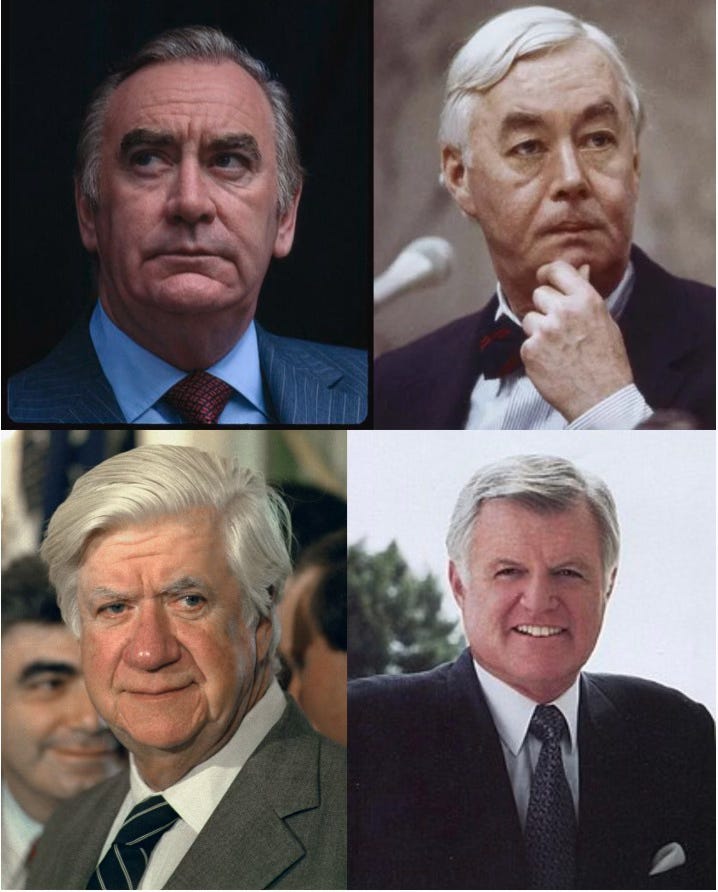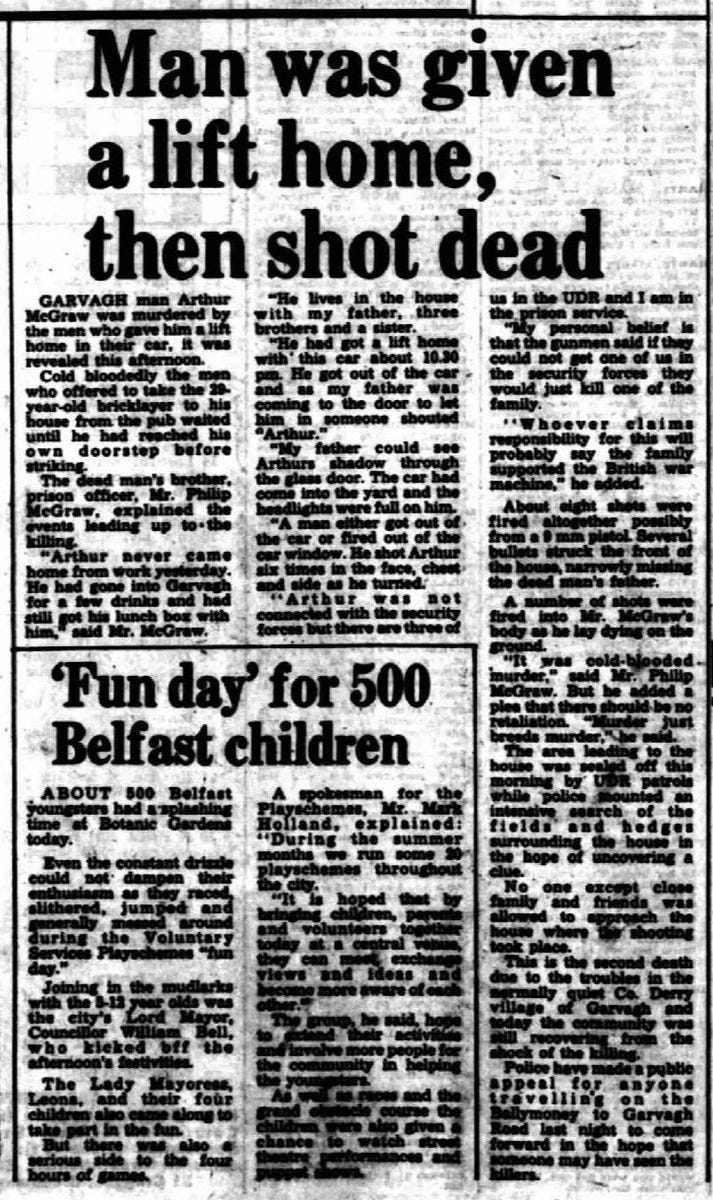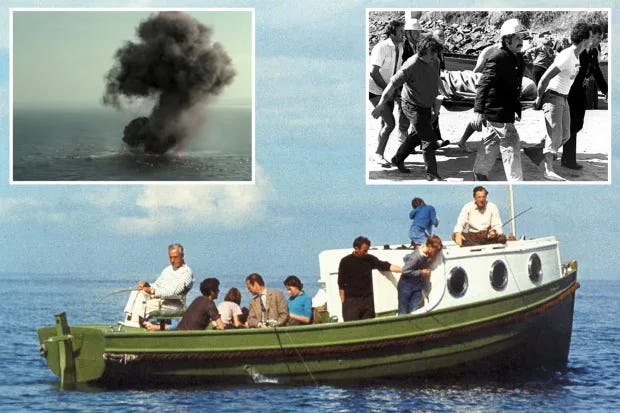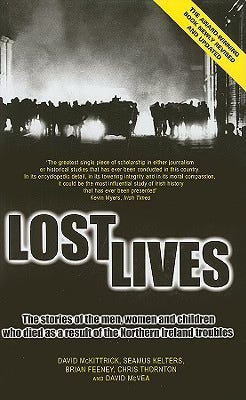August 1979: Mountbatten
August 1979 saw “Off the Wall", the 5th studio album by Michael Jackson, released. In Northern Ireland, off-the-wall was an apt description of the violence that occurred during the same month.
Political Developments in August 1979
August began when the United States State Department halted a private firearms shipment to Northern Ireland. The shipment also included firearms intended for the RUC. The RUC later purchased the arms from West Germany instead. This decision by the US State Department was brought about by a campaign to pressure the British government to undertake a new political initiative in Northern Ireland to find a solution to the conflict. The campaign was headed by the so-called 'Four Horsemen' who were Speaker of the House of Representatives 'Tip' O'Neill, Senator Edward Kennedy, Senator Daniel Moynihan, and Governor of New York Hugh Carey. Previously, the US had been uncritical of British policy in Northern Ireland and these developments proved worrying for the British government.
Representatives from the Irish National Caucus paid a visit to Northern Ireland on the 11th and said that the Caucus intended to make the conflict in the region a major issue during the 1980 United States Presidential election.
On the 22nd, Secretary of State for Northern Ireland Humphrey Atkins rejected a proposal that Governor of New York Hugh Carey should chair talks in New York between Atkins and Irish Foreign Minister Michael O'Kennedy.
British Prime Minister Margaret Thatcher paid a visit to Northern Ireland on the 29th to hold discussions on security. In Rome, it was announced that Pope John Paul II would not travel to Armagh during his forthcoming visit to Ireland on the 29th of September.
August ended with a decision taken by the British government on the 30th to increase the size of the RUC by 1,000 officers to 7,500. This reflected a continuation of the policy of 'Ulsterisation' or 'police primacy'. There was some continuing friction between the British Army and the RUC over this policy. On the 2nd of October 1979, a new post of security Coordinator for Northern Ireland was created to try to improve relations between the British Army and the RUC.
Shootings in August 1979
August 2nd.
RUC officer Derek Davidson (26) was shot dead by the IRA in Belfast. He had been lured to the scene of a bogus robbery.
August 7th.
Eamonn Ryan (32), a civilian in the Republic of Ireland, was shot dead by the IRA during a bank robbery in Strand Street, Tramore, County Waterford.
August 9th.
The INLA carried out several gun attacks on the British Army and RUC in West Belfast during unrest marking the tenth anniversary of the deployment of British troops to Northern Ireland and the eighth anniversary of internment.
August 10th.
Protestant civilian Arthur McGraw (29) was shot dead by the IRA outside his home in Garvagh, County Londonderry. He was mistaken for his brother, who was a member of the UDR.
August 28th.
John Hardy (43), a Catholic civilian, was shot dead by the UVF at his home in Ashton Street, New Lodge, Belfast.
If you’d like to support the newsletter, why not buy me a ☕️ ?
Bombings in August 1979
August 2nd.
British soldiers Paul Reece (18) and Richard Furminger (19) were killed by the IRA in a landmine attack at Cathedral Road, Armagh. These deaths brought the total number of British Army soldiers killed in Northern Ireland since 1969 to 301.
August 2nd.
British soldiers Paul Reece (18) and Richard Furminger (19) were killed by the IRA in a landmine attack at Cathedral Road, Armagh. These deaths brought the total number of British Army soldiers killed in Northern Ireland since 1969 to 301.
August 3rd.
Protestant civilian William Whitten (65) died after being injured by a bomb attack on a hotel in Ballycastle, County Antrim on the 19th of June.
August 27th.
18 British soldiers were killed in an IRA attack at Warrenpoint, County Down. This represented the British Army's greatest loss of life in a single incident in Northern Ireland. The attack began when the IRA exploded a 500-pound bomb at Narrow Water, near Warrenpoint, as an army convoy was passing. Six members of the Parachute Regiment were killed in this initial bomb. As other troops moved into the area, a second bomb was detonated at a nearby Gate Lodge, killing 12 soldiers - 10 members of the Parachute Regiment and two members of the Queen's Own Highlanders (one of whom was the Commanding Officer). The explosion also damaged an army helicopter. A gun battle then broke out between the IRA, who were positioned in the Irish Republic, and British Army soldiers in Northern Ireland. Innocent civilian Michael Hudson (29) was killed on the Republic side of the border by soldiers firing from the north. The 18 British soldiers who lost their lives were David Blair (40), Thomas Vance (23), Ian Rogers (31), Robert England (23), Jeffrey Jones (18), Gary Barnes (18), Anthony Wood (19), John Giles (22), Victor MacLeod (24), Leonard Jones (26), Robert Jones (18), Donald Blair (23), Nicholas Andrew (24), Raymond Dunn (20), Michael Wood (18), Peter Fursman (35), Christopher Ireland (25) and Walter Beard (33).
Earlier in the day, Louis Mountbatten (79), a cousin of the Queen, was killed by a bobby-trap bomb left by the IRA on his fishing boat (Shadow V) at Mullaghmore, near Sligo in the Republic of Ireland. Three other people were killed in the explosion: Lady Brabourne (82), Nicholas Knatchbull (14), who was Mountbatten's grandson, and Paul Maxwell (15), who was a crew member on the boat. Mountbatten had been a regular visitor to the Mullaghmore area of County Sligo each August. He was on a fishing trip and was accompanied by several people on the boat when the bomb exploded shortly after they left the harbour. During the Second World War, Mountbatten had been the supreme commander of Allied forces in south-east Asia. He had also been the last British Viceroy of India and oversaw Indian independence. Thomas McMahon was charged with Mountbatten's murder and later sentenced to life imprisonment.
August 28th.
Four British soldiers were wounded when the IRA detonated a bomb under a bandstand in Brussels, Belgium, as British Army musicians were preparing to perform.
Thanks very much for reading. I hope you found it interesting and will come back on Sunday!
I appreciate everyone who recently hit that heart icon ❤️ at the bottom. It makes it easier for other people to find this newsletter.
Thanks for the support!
I’ve also recently released Tales of The Troubles: Volume 1. The Early Years - 1960s. Check it out. It would be a great addition to your library or a gift for someone for Christmas. Stay tuned for Volume 2, covering the 1970s.
If you’d like to let me know what you think of today’s instalment, please comment below.
Some recommended reading based on research for this instalment.
Lost Lives: The Stories of the Men, Women and Children Who Died as a Result of the Northern Ireland Troubles by David McKittrick, Chris Thornton, Seamus Kelters and Brian Feeney.






